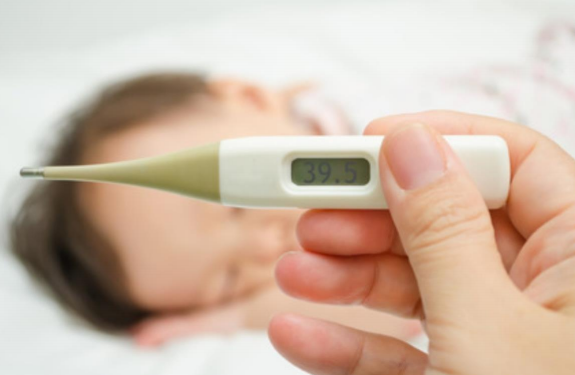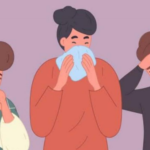Fever is a temporary increase in average body temperature of 37 oC (98.6 oF) often due to an illness, having a fever is a sign that something out of the ordinary is going on in your body.
As a person body temperature increases, they may feel cold until it levels off and stops rising. Eating, exercise, sleeping time of the day and individual factors can also affect body temperature.
When an infection occurs, the immune system will launch an attack to try to remove the cause, a higher body temperature is a normal part of this reaction.
- Read also: COLD: Common cold, Symptoms, Prevention, Healthy diets and control
- HEARTBURNS: Complications, causes, and control
For infants and toddlers, a slightly elevated temperature may indicate a serious infection. For adults, a fever may be uncomfortable but usually is not a cause for concern unless it reaches 103oF (39oC) or higher.
Symptoms
- General body weakness
- Shivering
- Feeling cold when nobody does
- Loss of appetite
- Sweat
- Headache
- Irritability
- Chills
- Difficulty concentrating
- Increase sensitivity to pain
- Signs of dehydration
In infants and toddlers
- Having flushed cheeks
- Feel hot to the touch
- Sweaty or clammy
- Dry mouth
- High pitched crying
- No appetite
- Pale appearance
- Constant vomiting or diarrhea
- Earache or pulling at the ear
A fever can be
- Acute: if it lasts for under seven days
- Subacute: if it lasts for up to fourteen days
- Chronic or persistent if it lasts for over fourteen days
Causes
Fever can result from various factors including
- An infection such as strep throat, the flu, chickenpox, pneumonia, or COVID-19
- Rheumatoid arthritis
- Overexposure of the skin to sunlight or sunburn
- Amphetamines abuse
- Dehydration
- Some medications
- Heatstroke, either due to high ambient temperatures or prolonged strenuous exercise
- Scoliosis which is a type of lung disease caused by long term exposure to silica dust
- Alcohol withdrawal
In children
A child with a high temperature may develop a febrile seizure, these are most likely to occur between the ages of twelve and eighteen months.
These often result from an ear infection, gastroenteritis, or a respiratory virus and they are not usually serious.
Less commonly they may stem from a more severe illness such as meningitis a kidney infection, or pneumonia. A seizure can occur when a body temperature rises quickly.
Prevention
To prevent a fever, the following steps are necessary to reduce the risk of infection
- Washing the hands regularly with soap and water
- Using hand sanitizer that contains at least 60% alcohol if soap and water are not available.
- Do not touch the face with an unwashed hands
- Cleaning and disinfecting surfaces regularly
- Cough and sneeze into a tissue, then disposing of the tissue and washing the hands
- Avoid close contact with people who are unwell
Control
A mild fever is part of the immune system’s response to bacteria, viruses, and other pathogens. It
helps the body fight off infection. However, it can be uncomfortable and high fever can sometimes lead to complications, for this reason, a doctor may something recommend a medication called antipyretics to lower a person’s temperature.
Examples include nonsteroidal anti-inflammatory drugs (NSAIDs), such as ibuprofen.
Acetaminophen (Tylenol) can also reduce fever; Aspirin can help but it is not suitable for children and it may not be suitable for people who take blood thinners.
In conclusion
Doctors classify fever according to how long it lasts, whether or not they come and go and how high they are. Hyperpyrexia can occur when a person’s temperature rises above 106⁰F (41 ⁰C) without treatment, this can lead to complications so, you must see a doctor when experiencing high fever.
For children: in most cases, a child who has a seizure should see a doctor, the doctor may suggest controlling their temperature and ensuring they drink plenty of fluid.
NSAIDs will not help if the fever is due to hot weather or sustained strenuous exercise. In cases like this, it is essential to cool the person down and if they are confused or unconscious, they need immediate medical care.
My kindly advise is for all family to get a digital thermometer for checking the temperature in your homes and closets and also stay hydrated always either children or adults when experiencing fever of any kinds.
By: Peace Chigozie

























































